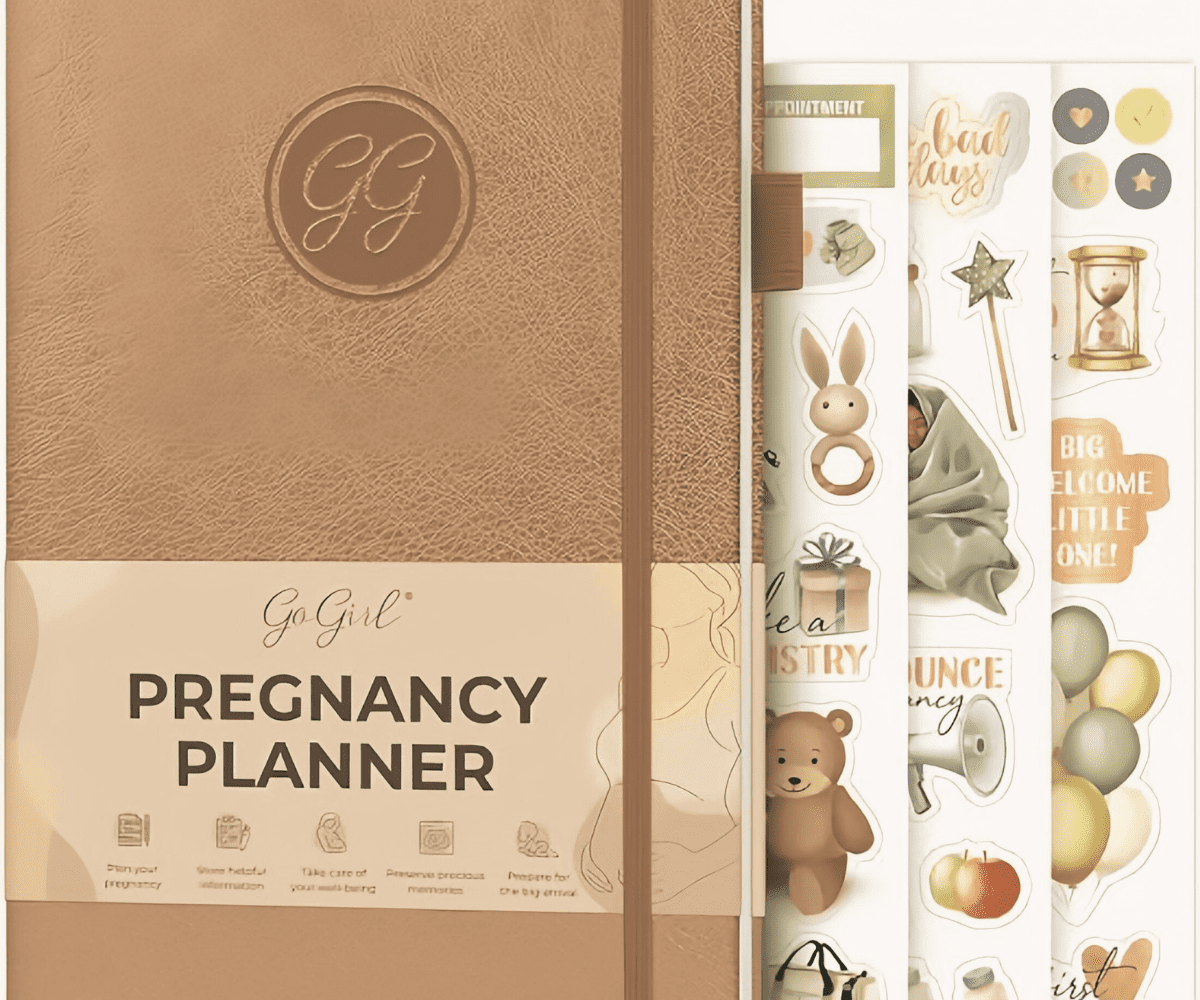The Ultimate Pregnancy Planner: Your Guide to a Healthy and Stress-Free Journey


Congratulations! You’re embarking on an incredible and life-changing journey – pregnancy. This pregnancy planner covers everything from before you conceive to after you give birth. It helps you make smart choices and have a happy, healthy pregnancy without stress.
Preconception Planning
Getting Your Body Ready
Before getting pregnant, it’s important to get your body ready for the big changes that will happen during pregnancy. Begin by eating healthy foods that have important nutrients like folic acid, iron, and calcium. Doing exercise regularly can also help you stay at a good weight and feel better overall.
Understanding Your Fertility Cycle
Familiarizing yourself with your fertility cycle can increase your chances of conceiving. Learn to identify the signs of ovulation, such as changes in cervical mucus and basal body temperature. Consider using ovulation predictor kits or fertility tracking apps to pinpoint your most fertile days.
Addressing Preexisting Conditions
If you have any health problems like diabetes, high blood pressure, or thyroid issues already, it’s really important to talk to your doctor. They can help you take care of these problems and make sure they don’t cause any trouble during your pregnancy.
The First Trimester (Weeks 1-12)
Confirming Your Pregnancy
The first step in your pregnancy journey is confirming that you’re expecting. Home pregnancy tests can detect the presence of the hormone human chorionic gonadotropin (hCG) in your urine, indicating that you’re pregnant.
Scheduling Your First Prenatal Appointment
As soon as you receive a positive pregnancy test, schedule your first prenatal appointment. Your healthcare provider will perform a physical examination, discuss your medical history, and outline the necessary steps for a healthy pregnancy.
Managing Morning Sickness
Morning sickness, or nausea and vomiting, is a common occurrence during the first trimester. Stay hydrated, eat small, frequent meals, and consider ginger or vitamin B6 supplements to alleviate symptoms.
Coping with Fatigue
Fatigue is another common complaint during the first trimester. Listen to your body and rest when needed. Engaging in light exercise, such as walking or prenatal yoga, can help boost your energy levels.
Pregnancy Planner-The Second Trimester (Weeks 13-28)


Monitoring Your Baby’s Development
During the second trimester, your healthcare provider will schedule regular prenatal appointments to monitor your baby’s growth and development. Be prepared for ultrasounds, fetal heartbeat checks, and other routine tests.
Staying Active and Comfortable
As your pregnancy progresses, it’s essential to stay active while taking precautions to avoid overexertion. Engage in low-impact exercises like swimming, prenatal yoga, or walking. Invest in comfortable maternity clothes and supportive shoes to accommodate your changing body.
Managing Common Discomforts
The second trimester can bring new discomforts, such as back pain, leg cramps, and constipation. Discuss safe remedies with your healthcare provider and consider prenatal massages or prenatal yoga to alleviate discomfort.
Pregnancy Planner-The Third Trimester (Weeks 29-40)
Preparing for Labor and Delivery
As you approach the final stretch of your pregnancy, it’s time to prepare for labor and delivery. Attend childbirth classes, tour the hospital or birthing center, and discuss pain management options with your healthcare provider.
Packing Your Hospital Bag
Around week 36, pack your hospital bag with essential items for yourself, your partner, and your newborn. Include comfortable clothing, toiletries, snacks, and any necessary documents.
Recognizing Signs of Labor
Familiarize yourself with the signs of labor, such as regular contractions, water breaking, and bloody show. Contact your healthcare provider immediately if you experience any of these signs or have any concerns.
Postpartum Care
Recovering from Childbirth
The postpartum period can be physically and emotionally demanding. Allow yourself time to rest and recover, and don’t hesitate to seek help from family, friends, or professionals when needed.
Breastfeeding Support
If you choose to breastfeed, seek guidance from lactation consultants or support groups. Proper breastfeeding technique and support can help ensure a successful and enjoyable experience for both you and your baby.
Postpartum Depression
Postpartum depression is a common and treatable condition. Be aware of the signs, such as persistent sadness, anxiety, or lack of interest in your baby, and don’t hesitate to seek professional help if you’re struggling.
Conclusion
Pregnancy is an incredible journey filled with joy, anticipation, and sometimes, challenges. By being well-informed and prepared, you can navigate this experience with confidence and ease. Remember to listen to your body, seek support when needed, and embrace every moment of this transformative experience.
FAQs
How often should I attend prenatal appointments?
Your healthcare provider will determine the frequency of your prenatal appointments based on your individual circumstances. Generally, appointments are scheduled every 4-6 weeks during the first and second trimesters, and every 2-3 weeks during the third trimester.
What should I eat during pregnancy?
A balanced diet rich in nutrients is essential for your baby’s growth and development. Focus on consuming a variety of fruits, vegetables, whole grains, lean proteins, and healthy fats. Avoid foods that may contain harmful bacteria, such as undercooked meat, raw eggs, and unpasteurized dairy products.
Is it safe to exercise during pregnancy?
Yes, regular exercise during pregnancy is encouraged for most women. Low-impact activities like walking, swimming, and prenatal yoga can help you stay fit and prepare for labor. However, consult with your healthcare provider to determine the appropriate exercise routine for your individual circumstances.
How much weight should I gain during pregnancy?
The recommended weight gain during pregnancy varies based on your pre-pregnancy body mass index (BMI). Generally, women with a healthy BMI should aim to gain between 25-35 pounds. Your healthcare provider can provide personalized guidance based on your specific situation.
What are the signs of complications during pregnancy?
Watch out for possible problems like bad morning sickness, bleeding down there, headaches that won’t go away, problems seeing clearly, and unexpected swelling. If you notice any of these signs or have worries, talk to your doctor right away.
Every pregnancy is different, so it’s important to listen to your doctor’s advice all along the way. With good planning, care, and help from others, you can enjoy this special time feeling sure and happy.

